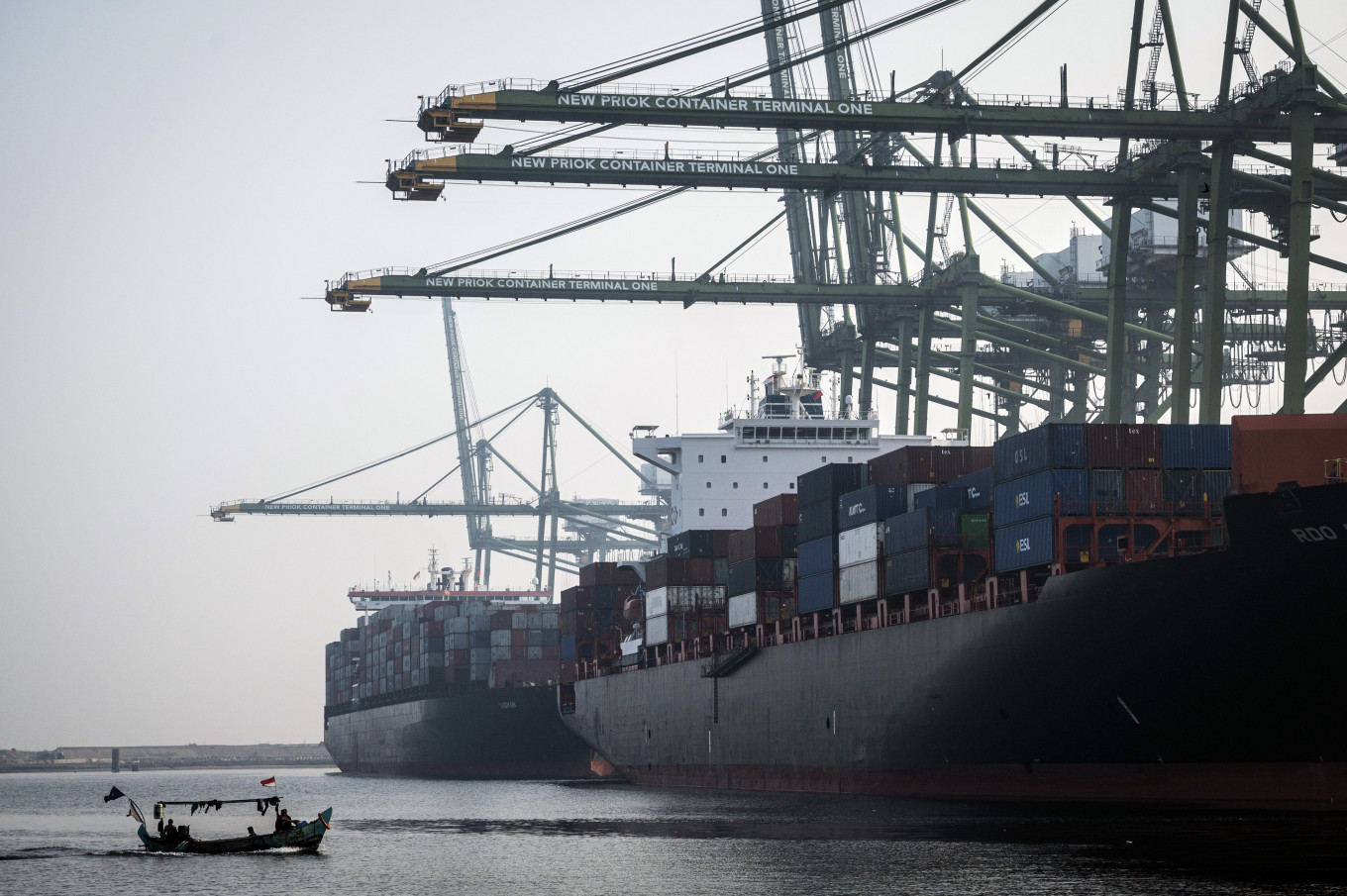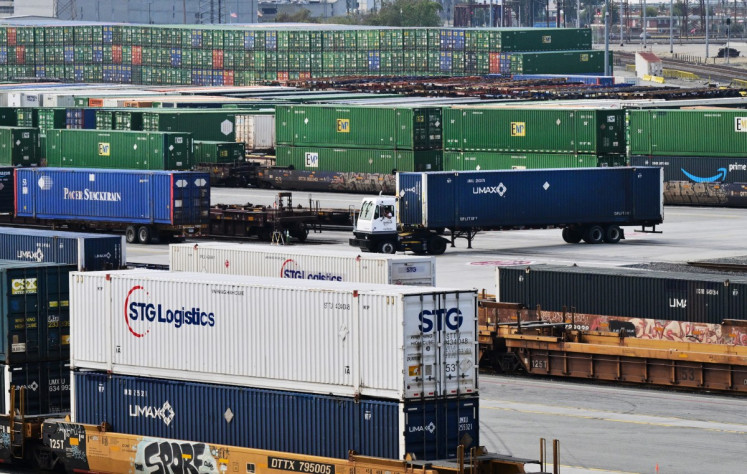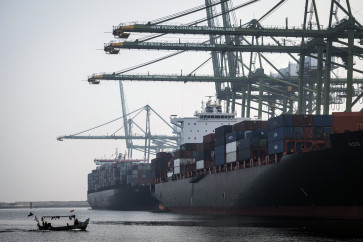Popular Reads
Top Results
Can't find what you're looking for?
View all search resultsPopular Reads
Top Results
Can't find what you're looking for?
View all search resultsFacing the tariff storm: Indonesia’s next move
The return of aggressive protectionism under Trump 2.0 presents an opportunity for Indonesia to increase its competitiveness and role in the global trade landscape, but this will require more investment and effort at home, as well as political will.
Change text size
Gift Premium Articles
to Anyone
T
he reescalation of global trade tensions has taken a dramatic turn as United States President Donald Trump announced sweeping tariffs on over 60 countries, including Indonesia, marking the return of aggressive protectionism under what many are calling “Trump 2.0”.
Washington has imposed a universal 10 percent base tariff on imports and additional levies on selected countries based on their trade surplus with the US. For Indonesia, this translates into a 32 percent tariff rate, posing risks to our export-dependent sectors and macroeconomic stability.
Indonesia is vulnerable through multiple transmission channels. On the trade front, the impact is twofold: a decline in exports to the US and a risk of being flooded with redirected Chinese products due to shrinking access to the US market.
This could intensify competition in the domestic market, particularly for low- to mid-range manufactured goods. Increased volumes of redirected Chinese exports, ranging from textiles and plastic products to electronics and household goods, could undercut domestic producers on price and scale.
Domestic industries that produce similar goods may find it harder to compete, especially those that rely on small and medium enterprises (SMEs) with limited efficiency and capital. If this is not addressed with appropriate safeguards, it could lead to sales decline and margin pressure for local manufacturers, which could affect employment.
Indonesia’s top export products to the US – textiles and apparel, footwear, electronics and furniture – are directly exposed to the tariff shock. These sectors also contribute significantly to employment and are integrated with global value chains. An increase in tariffs will likely result in reduced demand and downward pressure on production volumes.
Meanwhile, financial markets are reacting with heightened volatility. The rupiah has weakened around 4 percent year-to-date as investors reassess emerging market risks. Markets are currently pricing in a possibility that the US Federal Reserve could cut interest rates by as much as 100 basis points this year, given the increasing signs of an economic slowdown and even the risk of a recession in the US.



















